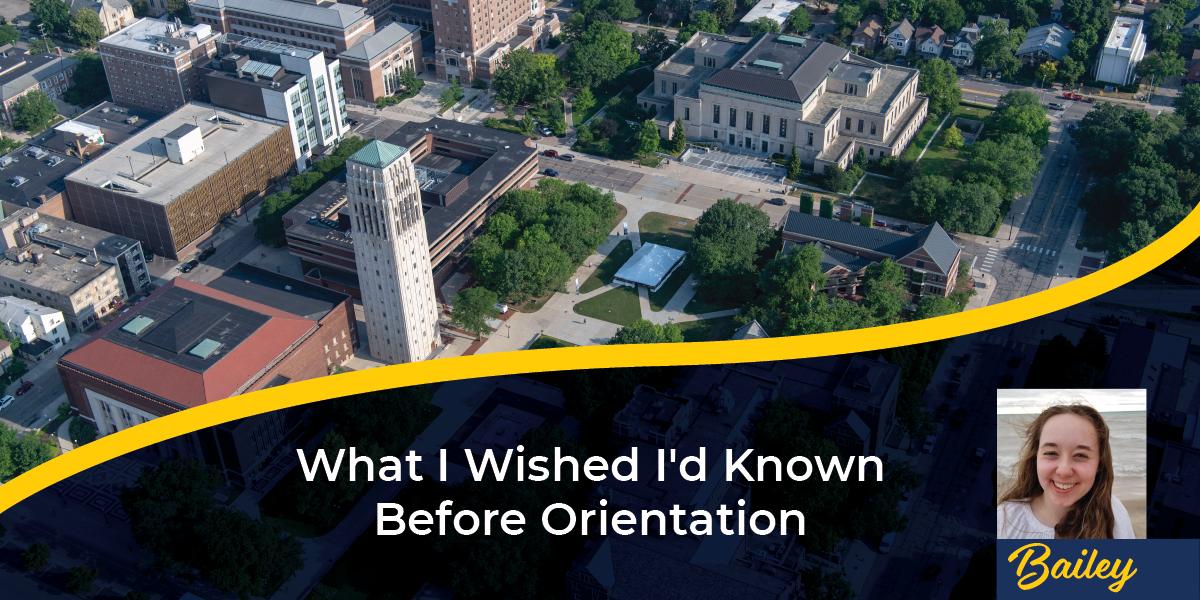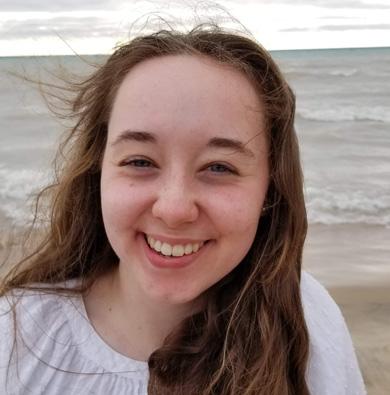Blog
Get the inside scoop about life at U-M and applying to Michigan from current student bloggers, Admissions staff, and guest faculty writers.

Get the inside scoop about life at U-M and applying to Michigan from current student bloggers, Admissions staff, and guest faculty writers.

It’s OK If You Don’t Have Everything Figured Out

Summer is here! For incoming first-year students, that means summer fun, shopping for your residence hall room, and, perhaps, a bundle of nerves surrounding orientation. You’ve finished high school, you’ve gotten into the greatest university in the world (a totally unbiased opinion), and now the start of a new chapter in your life is in sight. Orientation is the first step in your life here at Michigan, but you might be feeling nervous, overwhelmed, or completely unsure of what to expect.
First off, whatever you’re feeling — whether excitement or nervousness or a combination of both — is totally normal and valid. The shift from high school to college is a big one, and it has its ups and downs. Even if you have friends or siblings who have already gone to college and are able to give you advice, you might be coming into orientation feeling unprepared.
Both of my older brothers went to U-M, but I still came into orientation a little bit nervous. While I was excited about starting college and joining my living-learning community (the Residential College), I came in undeclared and had no idea which classes I ought to enroll in.
This leads me to my first piece of advice: You don’t have to have your major and all of your courses mapped out for the next four years. If you’ve got a plan, great! But know that it’s likely going to change, so keep an open mind. But if, like me, you come in undeclared, your first year is an opportunity to explore what interests you. I recommend looking at the course guide for your college — for example, the College of Literature, Science, and the Arts (LSA) course guide — and making a list of all of the courses you’re remotely interested in taking. Keep track of which requirements each course covers and when the classes meet. Then, take a look at the general distribution requirements of your college (for example, LSA has different general requirements than the College of Engineering). Make a few lists of potential courses you could take your first year that would meet some of these requirements.
There are certain courses, like your first-year writing seminar, language courses, and math courses, that most first-year students take either first or second semester. Make a list of all of your options and which courses seem essential or most interesting to you.
I’m encouraging you to come into Virtual Academic Advising with multiple lists of different courses that interest you or will likely meet requirements, because you might not be able to register for your first-choice courses. Booking classes might be overwhelming and a lot of the courses you want might already be full, but don’t panic if that’s the case. You have more options than you think, and it will not make or break your undergraduate career if you have to wait until your second semester to get into a particular course. When in doubt, take courses that fulfill distribution requirements. You’ll have advisors to help you through the process, so come to your Virtual Academic Advising appointment with any questions or concerns that you have.
As you prepare for fall semester, you might be eager to meet new people and make new friends. While I definitely recommend joining Facebook groups and getting to know people during your small group campus visit, know that you likely won’t remain best friends with the first people you meet on campus or online. I’ve known people that it goes both ways for — some people do remain best friends with their first-year roommate that they met on Facebook. Other people find a group of friends early on, but make other, deeper, friendships later on during their first or second year. You’ll be meeting loads of new people these next few months, so don’t worry if you struggle to make lasting friendships right away. It’s difficult, but nearly every first-year student is facing the same challenges as you.
Lastly, things will calm down once you get to campus in the fall. Orientation is a necessary part of the college experience, but you’ll truly start to learn, make friends, and join different campus groups once you’re here. Don’t put too much pressure on yourself to have everything figured out before or during orientation. This summer is a great opportunity to start to familiarize yourself with campus and the types of wonderful courses Michigan has to offer, as well as to begin researching campus clubs and organizations you might be interested in joining. But don’t overthink it. “Welcome to Michigan” in August, with events like Festifall, will provide you with ample opportunities to find your place here at Michigan. We are so excited to welcome you to your new home!

Bailey Burke is a senior in the College of Literature, Sciences, and the Arts, pursuing majors in history and creative writing & literature, with a minor in Spanish. She is from Grand Rapids, Michigan. Bailey is in the Residential College, where she founded RC Letters Forum. She is also involved in campus ministry with St. Mary Student Parish and the Kateri Institute for Catholic Studies. She studied abroad in winter 2022 in Dublin, Ireland, and is hoping to travel after she graduates. In her free time, you can find Bailey reading, writing letters, and drinking tea.